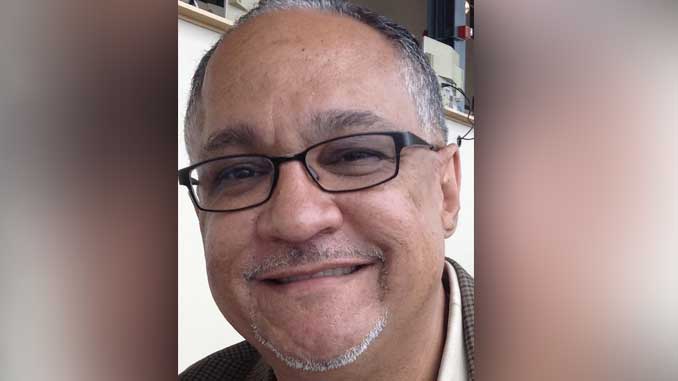
Jeff Thomas Think 504
We’ve written previously about how racism affects the health and well-being of millions of Americans. The evidence demonstrates that people who experience racial discrimination are more likely to have a range of health problems, including poorer mental health and a lower quality of life.
Now the American Academy of Pediatrics has issued a policy statement describing how racism affects the well-being of young people. The statement summarizes all of the evidence available on the role that discrimination plays in the health outcomes of children and adolescents.
The problem comes down to stress, the policy document explains. When the mind senses a potentially harmful situation, it tells the body to prepare by increasing its heart rate, breathing, blood pressure and releasing stress hormones. This response helped earlier humans outrun or fight predators and enemies. Today, people have the same response when they encounter stressful situations, such as discrimination.
When people of color experience this response frequently, it causes inflammatory reactions in their bodies that can ultimately lead to immediate health problem and, in the long run, chronic diseases. Researchers now believe that racial disparities have far-reaching effects as children develop, including infant mortality rates, mental health problems (e.g., depression and anxiety), and behavioral issues (e.g., attention deficit hyperactivity disorder).
And the health effects extend beyond the children who experience discrimination. When children observe racism, it can erode their self-confidence and mental health enough to affect developmental milestones and achievement in school. This is especially true when the discrimination is affecting the children’s parents. For example, in one study, parents and caregivers who reported they had been treated unfairly were more likely to have children with behavioral issues.
Beyond describing the problem, the policy statement gives specific directions about how pediatricians can address this issue. It starts by building a medical practice where everyone feels welcome. That means having racially-diverse toys and pictures on the walls in waiting rooms, and training the reception staff to welcome all patients.
And it extends to advocating in the community for quality education for all, access to mental health services, a diverse school staff, fair housing, alternatives to youth incarceration and more.
Cornell psychologist Anthony Ong’s work focuses on the complex interplay of social, emotional, cognitive and cultural resources that people draw upon to adapt to stressful life circumstances as they age, and the ways these factors have an effect on health and well-being. Addressing the systemic problems in our society is likely the most effective ways to improve the health and well-being of minority youth.
“As a psychologist, I study the ways in which interpersonal racism can have harmful consequences for peoples’ life chances, including their psychological and physical health,” he said. “However, it’s important to keep in mind that perhaps the most profound effects of racism occur via macro-level systems or public policies that shape access to social and economic resources. These are the systems that produce and reproduce everyday racism and its ill effects through time.”
The take-home message: Racism has detrimental consequences across the lifespan. Because racism has been embedded in our culture for centuries, it will take a conscientious effort from people across society to remedy the problem.
But dude wanted to have the premises shut down to the public during his personal tour.
“The notion that we could shut out visitors on the first King holiday since the opening of the museum was not something I could accept,” Bunch wrote in his memoir, according to the Washington Post.
A different day for POTUS’ visit was eventually chosen.
And when Trump and his chain gang visited—including the formerly beloved surgeon turned bumbling presidential candidate and now HUD secretary Dr. Ben Carson, and former press secretary Sean Spicer—Bunch recalled that he was warned by White House aides that Trump “was in a foul mood and that he did not want to see anything ‘difficult.’”
Perhaps they should’ve taken him to Disneyland. Or even Dollywood.
The National Museum of African American History and Culture is what its name implies: a chronicle of black history in America from soup to nuts; from the rooter to the tooter; the good, the bad and the mafugly.
There are slave ship replications and remnants from the Civil Rights Movement juxtaposed alongside entertainment-focused exhibits and other materials that explore the pantheon of just about everything The Blacks had to endure on American soil how and we helped build this country.
“It was not my job to make the rough edges of history smooth, even for the president,” Bunch, who was on the ground floor of the momentous landmark since its inception, wrote.
“The president paused in front of the exhibit that discussed the role of the Dutch in the slave trade,” Bunch continued. “As he pondered the label I felt that maybe he was paying attention to the work of the museum. He quickly proved me wrong. As he turned from the display he said to me, ‘You know, they love me in the Netherlands.’ All I could say was let’s continue walking.”
Bunch recalled remembering very little about the rest of the hour spent with the former reality star turned Leader of the Free World: “I was so disappointed in his response to one of the greatest crimes against humanity in history. Here was a chance to broaden the views and the understanding of the incoming president and I had been less successful than I had expected.”Knowing Trump’s history regarding racial matters, I’m not sure why he was expecting something different.
Negroes keep forgetting that fat meat is greasy.
Recommended For You.

Stacy M. Brown NNPA Newswire Senior National Correspondent
A recurring theme from supporters of President Joe Biden since the debate debacle


Be the first to comment